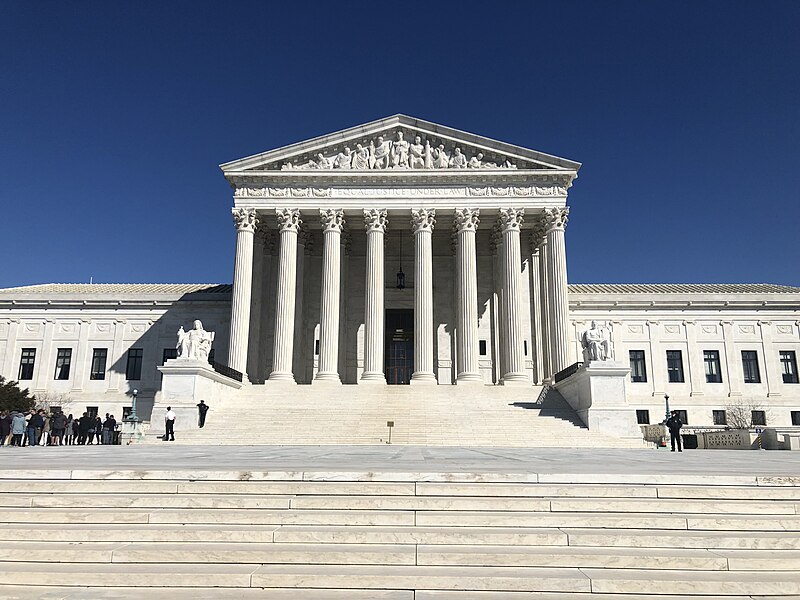
President Joe Biden announced significant proposals for the U.S. Supreme Court on Monday, advocating for term limits and a binding code of conduct for the nine
justices. However, with Republican opposition in Congress, these proposals face an uphill battle for enactment.
Biden called on Congress to implement binding rules requiring justices to disclose gifts, avoid public political activity, and recuse themselves from cases where they or their spouses have financial or other conflicts of interest. Additionally, he urged for an 18-year term limit for justices, who currently have life tenures.
In an opinion piece published in the Washington Post, Biden also proposed a constitutional amendment to eliminate broad presidential immunity, as recognized in a recent Supreme Court ruling involving former President Donald Trump. Biden will address this issue at the Lyndon B. Johnson Presidential Library in Austin, Texas, later on Monday.
"This nation was founded on a simple yet profound principle: No one is above the law. Not the president of the United States. Not a justice on the Supreme Court of the United States. No one," Biden wrote.
Biden ended his reelection bid last week and endorsed Vice President Kamala Harris as the Democratic candidate for the November 5 presidential election, where she will face Trump, the Republican nominee. Biden has previously convened a commission to study Supreme Court changes and has appointed one justice, liberal Ketanji Brown Jackson.
"In our democracy, no one should be above the law. So we must also ensure that no former president has immunity for crimes committed while in the White House," Harris, a former prosecutor and California attorney general, stated on Monday.
House Speaker Mike Johnson, the top congressional Republican, criticized Biden's proposals as an effort to "delegitimize the court" and stated that the changes would not be considered by the Republican-controlled House. "This dangerous gambit of the Biden-Harris administration is dead on arrival in the House," Johnson said.
The Republican National Committee labeled the proposals as an attempt to pack the Supreme Court with "far-left, radical judges."
Despite the challenges, Steve Benjamin, Biden's director of public engagement, affirmed that the President is committed to pursuing these reforms. "He's still moving forward. He won't stop," Benjamin said.
Since the Supreme Court attained a 6-3 conservative majority in 2020, largely due to Trump's three appointees, it has shifted American law rightward. The court's recent decisions include ending recognition of a constitutional right to abortion, expanding gun rights, rejecting race-conscious college admissions, and blocking parts of Biden's agenda on immigration, student loans, COVID vaccine mandates, and climate change.
New Code of Conduct
Unlike other federal judiciary members, Supreme Court justices do not currently adhere to a binding ethics code. While disclosure laws require reporting of outside income and certain gifts, exceptions exist for food and "personal hospitality" such as lodging at an individual's residence.
In November, the court adopted its first code of conduct following revelations about Justice Clarence Thomas accepting undisclosed travel from a wealthy benefactor. Justice Samuel Alito has also faced criticism after reports of flags associated with Trump's 2020 election bid flying outside his homes. Alito has stated that his wife flew the flags.
Critics argue that the new code of conduct is inadequate, as it allows justices to self-determine recusal from cases and lacks an enforcement mechanism. Legislation would be needed to impose term limits and a comprehensive ethics code, which is unlikely to pass in the current Congress, where Democrats control the Senate and Republicans control the House.
Biden's proposed constitutional amendment to ensure that former presidents do not have immunity from federal criminal indictment, trial, conviction, or sentencing would be even more challenging to enact. This would require two-thirds support in both the House and Senate or a convention called by two-thirds of the states, followed by ratification by 38 of the 50 state legislatures.
Trump is the first former president to be indicted, facing charges in four separate cases, although one was dismissed. In May, a jury in New York state court found him guilty of felony charges related to hush money paid to a porn star to avoid a sex scandal before the 2016 election. Photo by Marielam1, Wikimedia commons.






































